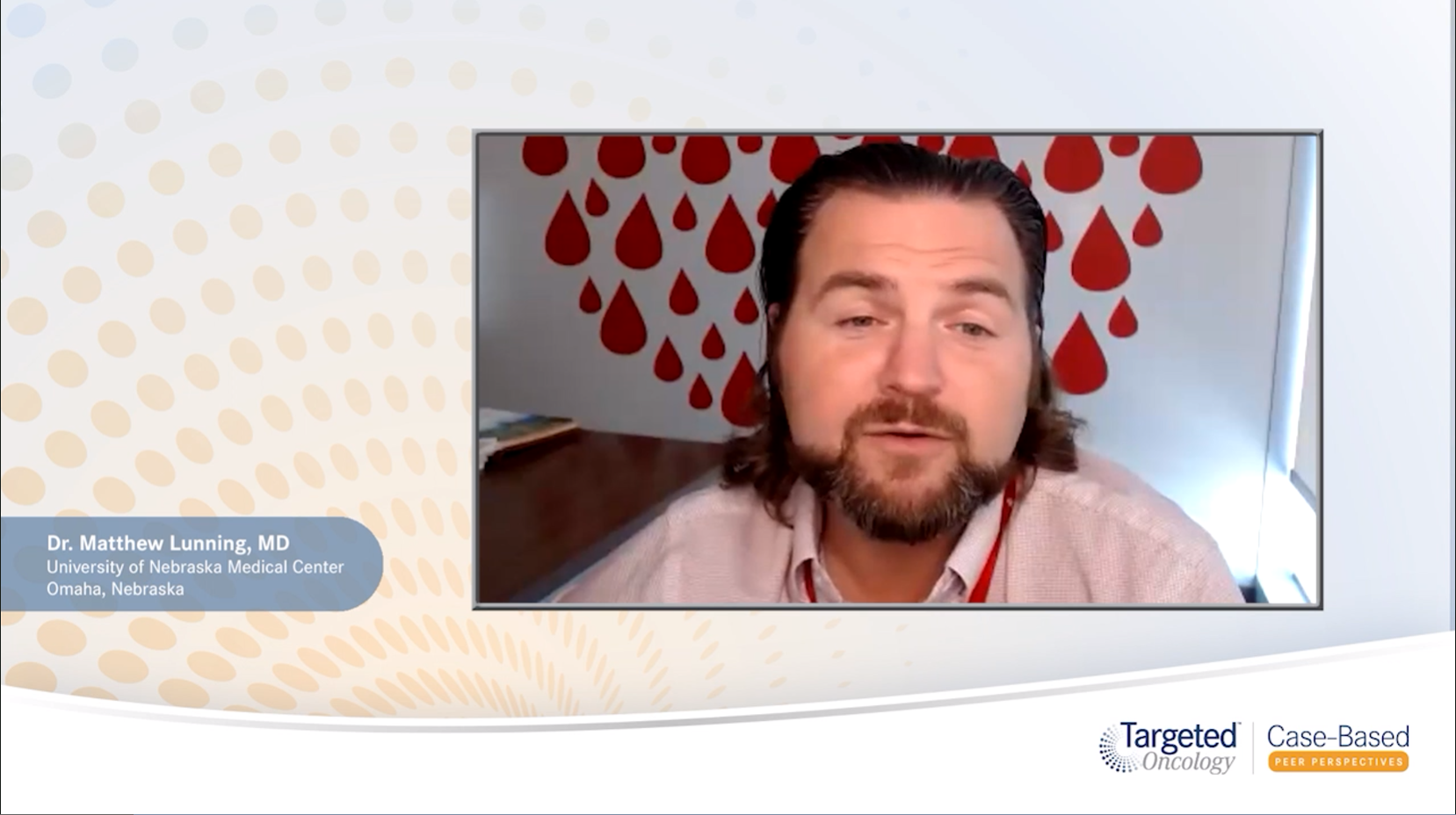L-MIND Trial Regimen Overview
Gilles Salles, MD: When we deliver this treatment to this patient what are the main adverse effects that we see? The principle toxicity of this regimen is hematological, and this is linked to both agents, as single agents both have some hematological toxicity. About half of the patients experience grade 3 or 4 neutropenia, but only 10% of them develop infections, and when we looked at the number of neutropenic episodes during the first year of the study, it is about 1 episode per patient, so it's not a major burden, for instance, after chemotherapy.
There are also about 18%-20% of patients presenting with grades 3/4 thrombocytopenia. Over 1 year, it's probably 10%-15% of the patients who have such an event, and it's usually easily manageable. The other adverse effects that we see are commonly observed with lenalidomide: skin rashes that we can usually manage, GI [gastrointestinal] symptoms, or fatigue. You may want to adjust the dose of lenalidomide to improve the tolerability of this regimen. There were very few patients who had to quit the regimen because of adverse effects, especially very few adverse effects related directly to tafasitamab. So this is a quite well-tolerated regimen for patients who are not transplant eligible.
To further assess the efficacy of this regimen, the investigators also collected data on patients who were treated with lenalidomide alone. These are real-world data that were presented by my colleague Grzegorz Nowakowski, MD, at the recent ASCO [American Society of Clinical Oncology] meeting.
To better assess the value of the combination of tafasitamab and lenalidomide, investigators collected data on patients who were treated with lenalidomide alone as a single agent with diffuse large B-cell lymphoma in the relapsed/refractory setting. They collected hundreds of pieces of data, which were compared with what is called the match analysis. This is taking patients’ individual characteristics and comparing them with those patients who had received the L-MIND regimen in the study. What they found is that the overall response rate of the patients who received lenalidomide alone was 34%, with only 13% of them achieving a complete response, as opposed to the matched population of an overall response rate of 67% and a complete response rate of more than 44%. There was a marked difference in terms of overall response rate and complete response rate. When we looked at the progression-free survival [PFS], it was twice as long, exceeding or close to 12 months, with the combination of lenalidomide plus tafasitamab, as opposed to lenalidomide alone, which achieved a PFS of 6 months or less. These data were important and contributed to the ground of data on which the FDA approved the combination of tafasitamab and lenalidomide.
Transcript edited for clarity.
Case: A 74-Year-Old Man with Diffuse Large B-Cell Lymphoma
Initial Presentation
- A 74-year-old man presented with fever, 14-lb unintentional weight loss and occasional chest pain
- PMH: DM, medically controlled
- PE: tired-appearing man; palpable bilateral cervical lymphadenopathy
Clinical Work-up
- Labs: LDH 2 times above normal; Hb 10.8 g/dL; bilirubin 2.3 mg/dL; creatinine 1.7 mg/fl; all others WNL
- Hepatitis B, C and HIV negative
- Lymph node biopsy; CD 20+ confirmed DLBCL; IHC panel: CD 10+, CD 19+
- Imaging:
- Whole body PET/CT scan showed activity the cervical lymph node region, largest node 2.5 cm; evidence of axillary and thoracic subcutaneous tissue involvement
- Ann Arbor stage 4; IPI: high-risk; ECOG PS 1
Treatment
- Treatment initiated with R-CHOP + RT; well-tolerated
- Interim PET scan after 4 cycles; progressive diseases noted
- Due to transplant ineligibility patient was treated with tafasitamab + lenalidomide









